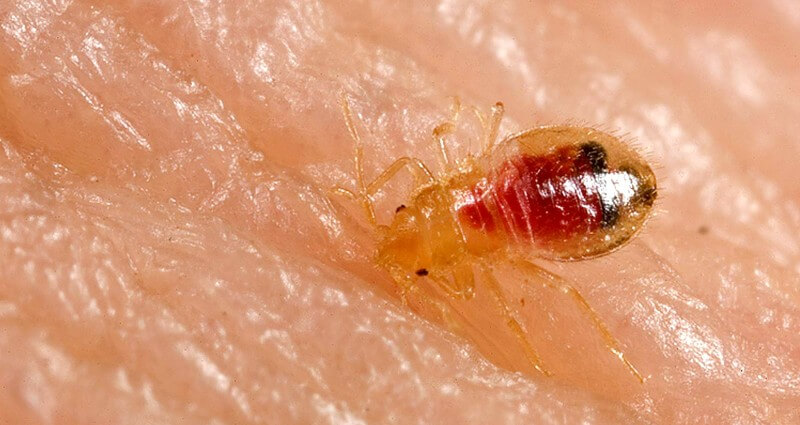Expert Kings Pest Control Cincinnati: Your Trusted Exterminators
Expert Kings Pest Control Cincinnati: Your Trusted Exterminators
Blog Article
Kinds of Parasite Control: Which Technique Is Right for Your Infestation?
When confronted with an insect infestation, the option of a suitable method for parasite control is vital in effectively taking care of the situation. From chemical treatments to organic services, there exists a series of techniques that can be used to deal with various kinds of pests. Each technique features its own collection of advantages and considerations, making the decision-making process a nuanced one. Recognizing the nuances of each method and examining their compatibility with the specific bug problem at hand is necessary for attaining lasting success in pest administration. By discovering the numerous sorts of insect control approaches available, individuals can make educated choices customized to their unique scenarios, ensuring a much more reliable and lasting outcome in parasite eradication.
Chemical Bug Control
Chemical pest control involves using artificial or naturally derived chemicals to manage and eliminate pest populaces successfully. This approach is frequently made use of in farming, forestry, and household settings to battle a variety of insects, including weeds, insects, and rats. Making use of chemical pesticides can offer fast and targeted options to pest invasions, making it a popular selection for lots of individuals and businesses.
Among the essential benefits of chemical insect control is its ability to quickly eliminate parasites, decreasing the risk of damages to plants, property, and human health and wellness. By using details chemicals that target specific parasites, this technique can properly manage problems while reducing injury to useful microorganisms and the environment when used correctly.
Nevertheless, the usage of chemical insect control additionally raises worries concerning potential negative effects on non-target types, water resources, and human health. It is vital to follow security standards, use chemicals properly, and think about different insect control techniques to decrease these risks and make sure lasting parasite management methods.
Organic Pest Control
Biological bug control, additionally referred to as biocontrol, utilizes living organisms to lower and manage pest populations naturally. This technique takes advantage of the power of nature to control pests without the need for synthetic chemicals. Biocontrol can include the introduction of natural opponents of the parasite species, such as killers, virus, or bloodsuckers, to reduce insect populations. By utilizing the insect's natural predators or microorganisms, biological pest control offers a lasting and ecologically friendly service to pest management.

Mechanical Pest Control
Using physical and hand-operated techniques to take care of insect populaces, mechanical parasite control offers an alternate strategy that does not rely on making use of living organisms or artificial chemicals. This technique involves making use of obstacles, traps, or other devices to physically prevent or pop over here remove pests. By blocking pest entry points or setting up traps to catch them, mechanical insect control can successfully lower invasions without introducing chemicals right into the setting.
One usual instance of mechanical bug control is the use of mesh displays on doors and windows to avoid insects from entering buildings. This simple yet effective method acts as a physical barrier, maintaining parasites out while permitting for correct air flow. Furthermore, gadgets like mousetraps, fly swatters, and ultrasonic repellents fall under the mechanical pest control category.
While mechanical parasite control approaches can be labor-intensive and call for routine tracking and maintenance, they offer a sustainable and environmentally pleasant remedy for taking care of bug invasions. By combining various mechanical strategies, homeowner can produce an extensive pest control approach that decreases reliance on chemical pesticides.
Physical Pest Control

Some usual physical pest control methods include the use of barriers such as nets or screens to prevent parasite entry, traps to capture and remove insects, and hand-picking to literally eliminate bugs from plants or frameworks. Additionally, methods like warm treatments can be utilized to manage bugs like bed insects by elevating the temperature level to degrees that are dangerous to the pests.
Physical parasite control is specifically valuable in incorporated bug monitoring (IPM) approaches, where numerous bug control techniques are integrated for efficient insect administration while reducing making use of chemicals. By utilizing physical pest control strategies, people can properly attend to bug invasions with minimal ecological influence.
Integrated Bug Management
When implementing physical pest control approaches as part of insect management approaches, Integrated Bug Management (IPM) emerges as a thorough technique that leverages different techniques to properly manage pest populations. IPM concentrates on long-lasting prevention of bugs with a mix of biological, cultural, physical, and chemical devices tailored to details insect issues. By incorporating multiple control methods, IPM aims to minimize the dangers link associated with parasites while likewise reducing dependence on chemical solutions.
One secret aspect of IPM is the focus on monitoring and analyzing pest populations to establish the most proper control methods. This positive approach enables very early intervention and targeted methods, leading to a lot more efficient bug management. Furthermore, IPM advertises environmentally pleasant techniques by prioritizing non-chemical control techniques and just using chemicals as a last hope.
Verdict

By making use of the insect's all-natural predators or virus, biological parasite control uses a environmentally pleasant and sustainable remedy to pest administration. - Kings cincinnati pest control
Using hands-on and physical approaches to manage bug populaces, mechanical insect control uses an alternative method that does not count on the use of living organisms or artificial chemicals.A reliable approach to handling parasite populations without relying on chemical or organic approaches involves the use of physical bug control strategies.When implementing physical bug control approaches as component of insect administration methods, Integrated Parasite Management (IPM) emerges as a detailed strategy that leverages various methods to properly control pest populations. Chemical insect control entails the usage of chemicals, biological bug control makes use of all-natural killers, mechanical pest control involves physical barriers, physical insect control consists of capturing or getting rid of parasites, and integrated insect administration integrates several techniques for an all natural strategy to pest control.
Report this page